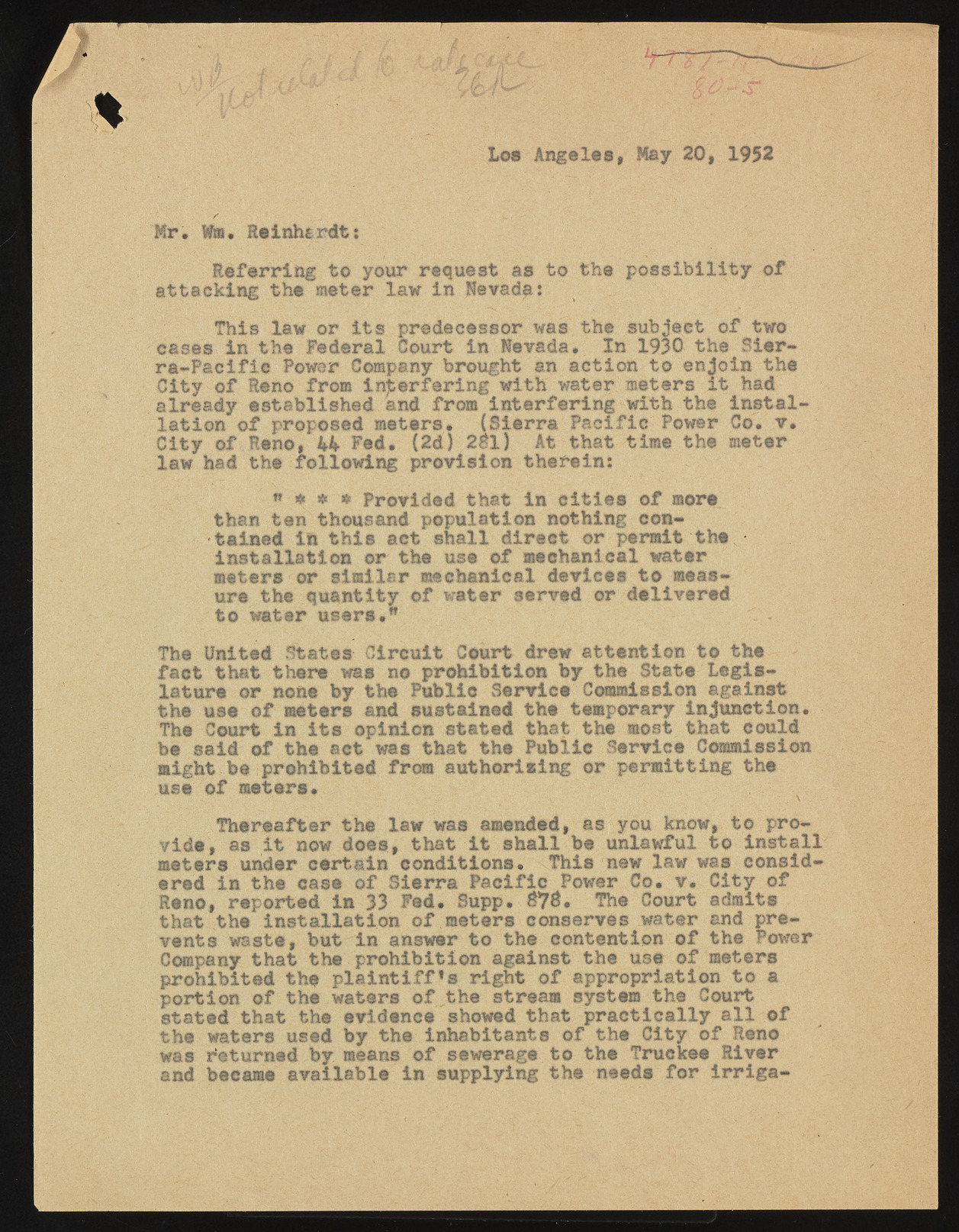Copyright & Fair-use Agreement
UNLV Special Collections provides copies of materials to facilitate private study, scholarship, or research. Material not in the public domain may be used according to fair use of copyrighted materials as defined by copyright law. Please cite us.
Please note that UNLV may not own the copyright to these materials and cannot provide permission to publish or distribute materials when UNLV is not the copyright holder. The user is solely responsible for determining the copyright status of materials and obtaining permission to use material from the copyright holder and for determining whether any permissions relating to any other rights are necessary for the intended use, and for obtaining all required permissions beyond that allowed by fair use.
Read more about our reproduction and use policy.
I agree.Information
Digital ID
Permalink
Details
More Info
Rights
Digital Provenance
Publisher
Transcription
Los Angeles, May 20, 1952 p ffiM ' ? '? jgjg l . | I. Mr . Wm. Reinhtrdt: Referring to your request as to the possibility of attacking the meter law in Nevada? This law or its predecessor was the subject of two cases in the Federal Court in Nevada. In 1930 the Sier- ra-Pacific Power Company brought an action to enjoin the City of Reno from interfering with water meters It had already established and from interfering with the installation of proposed meters. (Sierra Pacific Power Co. v. City of Reno, 44 Fed. (2d) 2S1) At that time the meter law had the following provision therein: « * » * Provided that in cities of more than ten thousand population nothing con- •tained in this act shall direct or permit the installation or the use of mechanical water meters or similar mechanical devices to measure the quantity of water served or delivered to water users." The United States Circuit Court drew attention to the fact that there was no prohibition by the State Legislature or none by the Public Service Commission against the use of meters and sustained the temporary injunction. The Court in its opinion stated that the most that could be said of the act was that the Public Service Commission might be prohibited from authorising or permitting the use of meters. Thereafter the law was amended, as you know, to provide, as it now does, that it shall be unlawful to install meters under certain conditions. This new law was considered in the case of Sierra Pacific Power Co. v. City of Reno, reported in 33 Fed. Supp. £7$. The Court admits that the installation of meters conserves water and prevents. waste, but in answer to the contention of the Power Company that the prohibition against the use of meters prohibited the plaintiff’s right of appropriation to a portion of the waters of the stream system the Court stated that the evidence showed that practically all of the waters used by the inhabitants of the City of Reno was returned by means of sewerage to the Truckee River and became available in supplying the needs for irriga-

